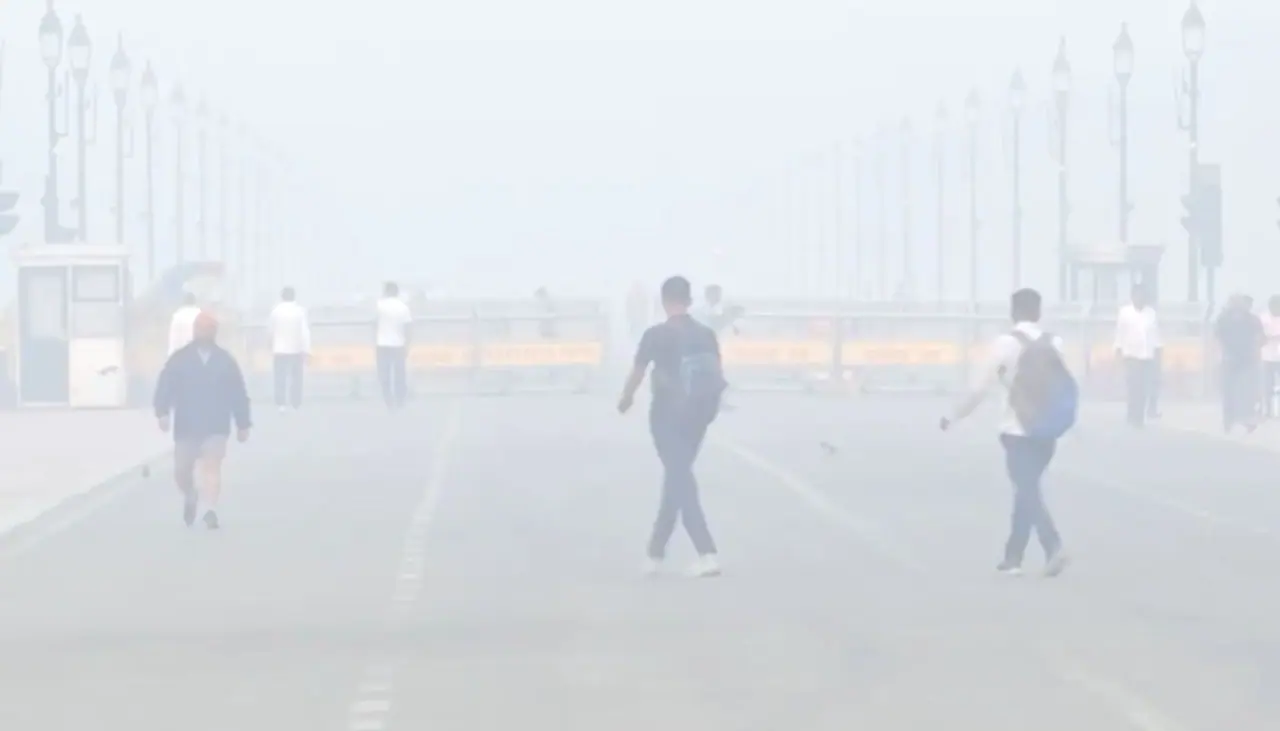GRAP-4 imposed as Delhi faces season's worst pollution; Know what is banned
Delhi's air quality reached a hazardous level of 481, triggering Stage IV of the Graded Response Action Plan (GRAP). Restrictions include limiting truck and vehicle entry, halting construction, and encouraging work-from-home arrangements.

As the air quality index reached 481, the highest level of the season, Delhi was shrouded in a dense layer of deadly haze on Monday, making it difficult to see shadows. Under Stage IV of the Graded Response Action Plan (GRAP), officials have implemented strict anti-pollution measures in response to declining air quality in an effort to stop the worsening catastrophe. The Commission for Air Quality Management (CAQM) issued the limitations.
Also Read | Delhi's air pollution crisis: Over Rs 4.8 Crore fines issued amid severe AQI levels

Here's what is banned:
1. Prevent trucks from entering Delhi, unless they are transporting necessities or performing necessary services. However, all trucks (LNG, CNG, electric, and BS-VI diesel) will be allowed entry into Delhi.
2. Except for those transporting necessary goods or doing necessary services, do not allow LCVS (light commercial vehicles) registered outside of Delhi to enter the city, with the exception of EVS, CNG, and BS-VI diesel.
3. Strictly prohibit the operation of medium- and heavy-goods vehicles (MGVs) and heavy-duty vehicles (HGVS) in Delhi that are registered BS-IV and lower, unless they are transporting necessities or rendering necessary services.
4. As in GRAP Stage-III, prohibit C&D (construction and demolition) operations for linear public projects such roads, highways, flyovers, overbridges, electricity transmission, pipelines, telecommunication, etc.
5. The NCR Even for grades VI–IX and XI, state and Delhi governments may decide to stop holding in-person sessions and instead offer instruction online.
6. The Delhi and NCR State Governments should decide whether to let public, municipal, and commercial workplaces to operate at 50% capacity while allowing the remaining employees to work from home.
7. The Central Government has the authority to decide whether to allow employees in its offices to work from home.
8. State Governments may consider additional emergency measures like closure of colleges/ educational institutions and closure of non-emergency commercial activities, permitting running of vehicles on odd-even basis of registration numbers etc.
People have also been asked to abide by the rules and contribute to the effective execution of the GRAP measures, which are meant to preserve and enhance the region's air quality. People with respiratory, cardiovascular, cerebrovascular, or other chronic illnesses, as well as children and the elderly, should avoid being outside and spend as much time indoors as possible.
Stay updated with the Breaking News Today and Latest News from across India and around the world. Get real-time updates, in-depth analysis, and comprehensive coverage of India News, World News, Indian Defence News, Kerala News, and Karnataka News. From politics to current affairs, follow every major story as it unfolds. Get real-time updates from IMDon major cities weather forecasts, including Rain alerts, Cyclonewarnings, and temperature trends. Download the Asianet News Official App from the Android Play Store and iPhone App Store for accurate and timely news updates anytime, anywhere.